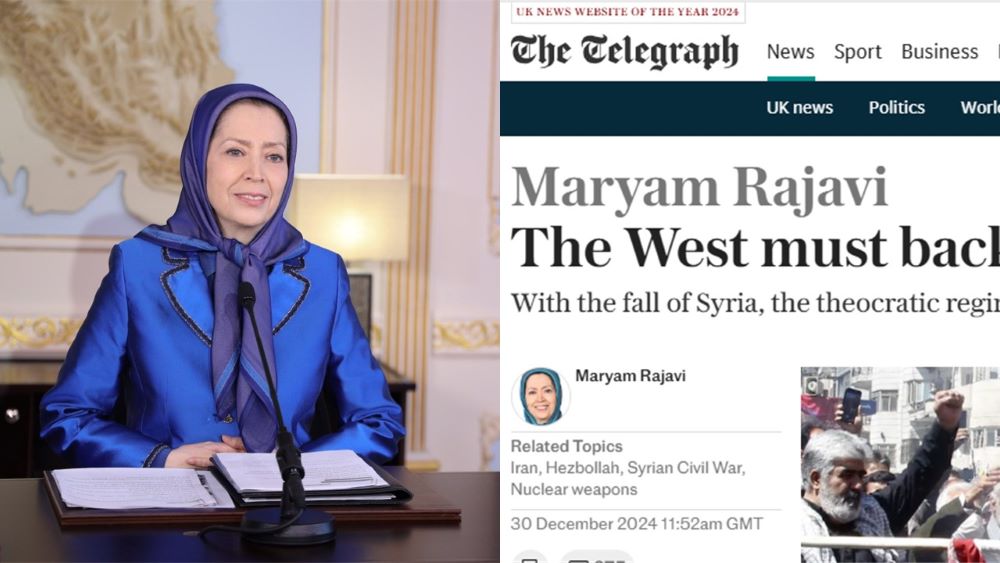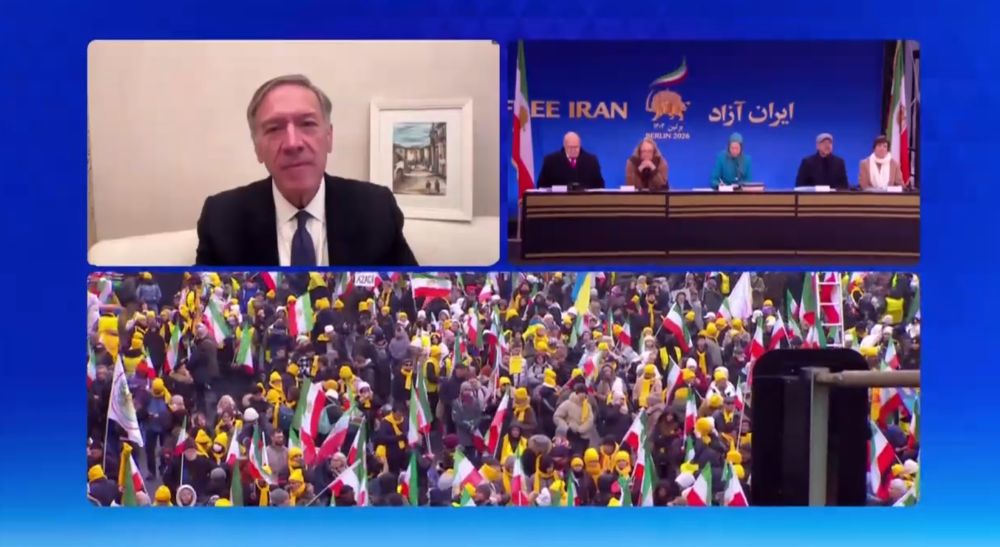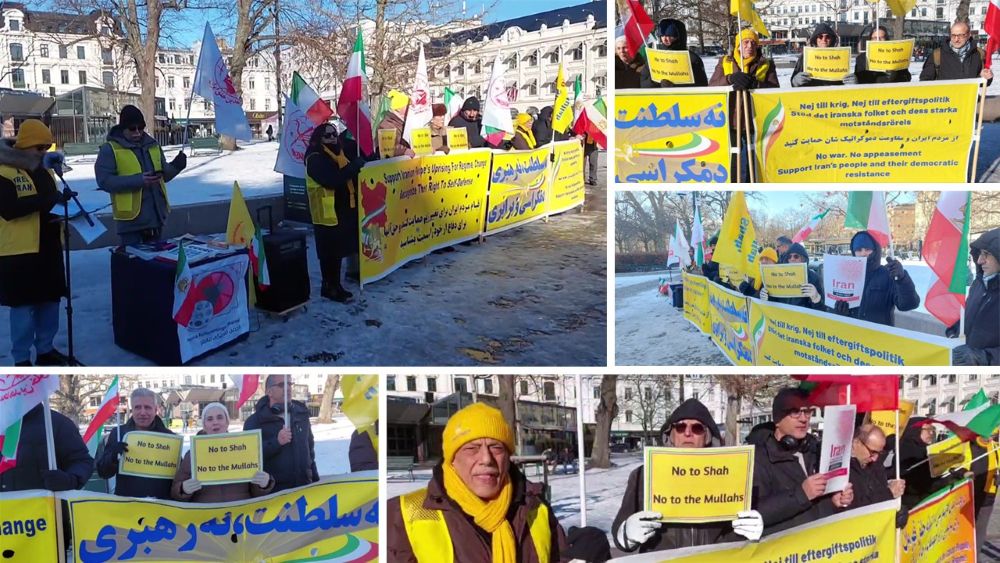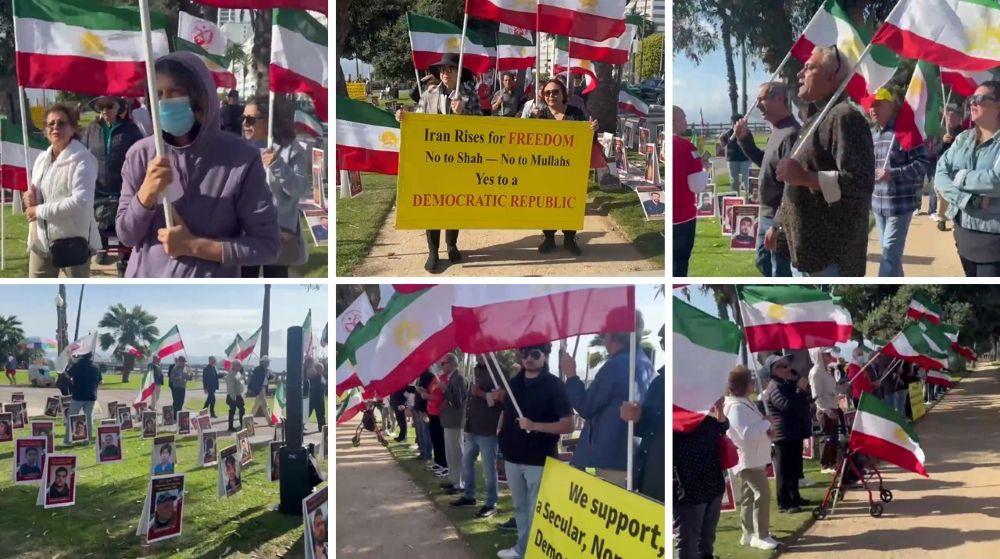
Mrs. Maryam Rajavi, President-elect of the National Council of Resistance of Iran (NCRI), argues in a recent article in The Telegraph that Iran’s theocratic regime is more vulnerable than ever following the collapse of Syria’s dictatorship. This, she contends, enhances the prospects for regime change in Tehran. However, she cautions that Supreme Leader Ali Khamenei may intensify efforts to develop nuclear weapons as a last-ditch attempt to hold onto power amid escalating crises.
In her article, published today, Mrs. Rajavi outlines how Syria was central to Iran’s regional ambitions, allowing the Islamic Revolutionary Guard Corps (IRGC) to project influence into Lebanon and bolster Hezbollah. Over the past decade, Tehran invested billions in Syria’s conflict, underscoring the importance of this alliance. According to her, the fall of Bashar al-Assad marks a severe blow to Iran’s regional strategy and sends a resounding message to Iran’s increasingly discontented population.
Domestically, the regime faces significant turmoil. Over the past six years, Iran has been rocked by widespread uprisings triggered by economic collapse, endemic corruption, and severe repression, particularly against women. In response to these challenges, the regime has resorted to harsh measures, including over 650 executions within five months under President Masoud Pezeshkian.
✍️ "With the fall of Syria, the theocratic regime is uniquely vulnerable – and it will seek nuclear weapons," writes @Maryam_Rajavi, the President-elect of the National Council of Resistance of Iran.
Read more here ⤵️https://t.co/AfYy33rjHR pic.twitter.com/ETrrWN2ub0
— The Telegraph (@Telegraph) December 30, 2024
Mrs. Rajavi highlights that the regime’s ongoing defiance—evidenced by its nuclear ambitions, support for terrorism, and regional aggression—has further deepened its international isolation. She asserts that past international strategies, including sanctions and diplomatic pressure, have been insufficient. Instead, she advocates for regime change led by the Iranian people and the organized Resistance.
The NCRI, she explains, has developed a comprehensive plan for a post-regime Iran. This plan includes forming an interim government to oversee free elections, drafting a new constitution, and establishing a secular, democratic republic committed to peace and equality. She envisions a non-nuclear Iran serving as a stabilizing force in the Middle East.
Mrs. Rajavi concludes by calling on the West to adopt a bold and principled policy that fully supports the Iranian people’s right to overthrow their oppressors. Such support, she argues, is essential not only for Iran’s liberation but also for regional and global stability.
Her article offers a compelling argument for why 2025 could be a decisive year for Iran and underscores the urgent need for international backing for the Iranian Resistance’s vision of a democratic future.



